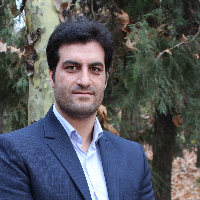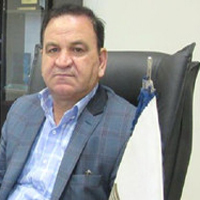The exploration of Identification and Selection mechanisms of Talented Faculty Members at Comprehensive Universities with regional performance level
Higher education system as a purposeful phenomenon has two quantitative and qualitative dimensions that balanced growth should be considered in both quantitative and qualitative dimensions in parallel. The three pillars of each higher education institution are faculty, infrastructure and learning environment. Among these three factors, it is more important to provide an appropriate context for attracting and retaining distinguished and diverse faculty members. Faculty members are one of the main factors in the structure of higher education, and their quantitative and qualitative decline has a direct impact on the performance of the higher education system. Also, The roles and responsibilities of college and university faculty members are closely tied to the central functions of higher education. The main purpose of this research is to explore Identification and Selection Mechanisms of Talented Faculty Members at Comprehensive Universities with Regional Performance level.
This research was conducted base on framework of qualitative approach. To this purpose, 15 knowledgeable academic and executive experts were selected purposefully and with a theoretical sampling strategy and interviewed in a semi-structured way. To analyze the data, the thematic analysis technique was used. To ensure the validity of the research used of reviewed by members (interviewees) and the triangulation of the data sources methods. Also, to calculate reliability were used of the retest and the agreement between the two coder methods. After implementing the content of the interviews and their preliminary analysis, Codes or basic concepts were identified and In order to achieve the main categories, similar codes are placed on specific categories. Finally, for each of the categories, the title that contains the entire codes was select.
As a result of this study, 16 mechanisms were identified for the Identification and Selection talented faculty members at Comprehensive Universities with regional performance level. According to experts, Identification and selection of faculty members based on the mission and goals of the University and Assign more time to the talent Identification and selection talent process of faculty members are more importance
Analysis of research findings shows, the most important weakness of regional comprehensive universities is the debility of universities in defining mission and vision and planning to attract faculty members. Such that, in current conditions The purpose of attracting new faculty members at most universities and higher education institutions is to fill vacant positions without considering the type of activity of the group, the College and the university.
-
Identifying the Components of Cognitive Capital (A Meta-Synthesis Study)
Vakil Azhideh, *, Hassan Mahjoub, Mitra Ezati
Journal of Applied Psycology Research, Summer 2025 -
Organizational Strategies in Turbulent Environments: A Meta-Synthesis Study
*, Mahsa Azizi
Quarterly Journal of Business Management, Summer 2025 -
Investigating The Effect of Principals’ Good Character on Secondary Schools Teachers’ Self-Efficacy with Mediating Role of Coaching Leadership Style
Masoud Hashemi, *, Ehsan Geraei
Journal of School administration, Spring 2024 -
Developing and validation of recruitment model of faculty members in University of Farhangian with emphasis on upstream documents: A mixed study
Farhad Alipoor, Yones Romiani *, Maryam Yarahmadi
Qurterly Journal of Research and Planing in Higher Education, -
Developing and validating of talent Identification Model of Faculty Members at Comprehensive Universities with regional performance level (Case: university of Lorestan)
Khodayar abili, unes romiani *, javad porkarimi, saeid frahbakhsh
Iranian Society for Training and Development, -
Investigating the Relationship between Poisonous Leadership of Managers and Organizational Silence of Teachers Mediated by Organizational Culture of Primary Schools in Khorramabad
Saeedeh Mirzaeefathabad *,
Journal of Research in elementary education,




